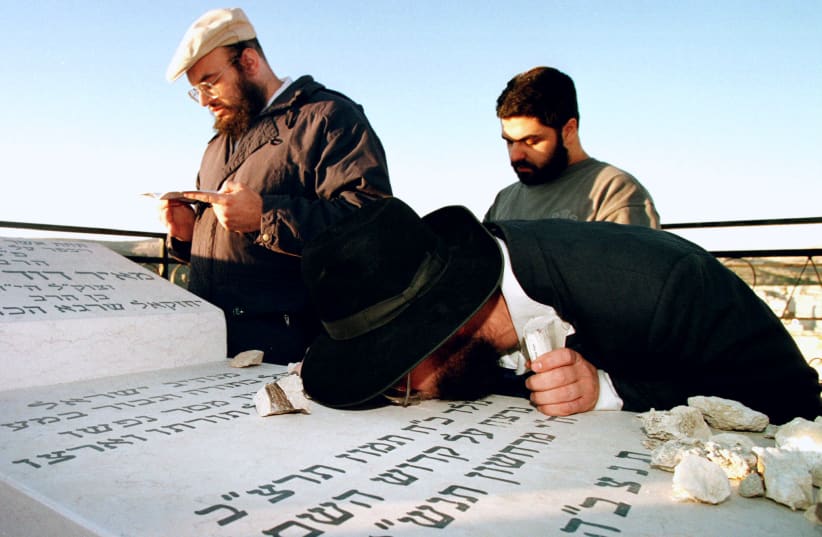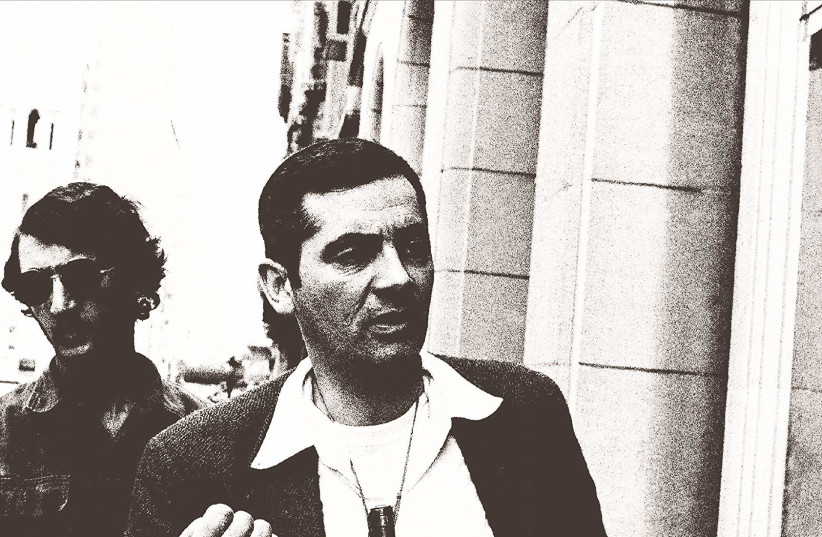In a feature article in the Sunday New York Times Magazine in 1971, the year he moved from the United States to Israel, Rabbi Meir Kahane declared, “When people think of Jewish defense, they automatically think of physical assault. And that’s not all we meant when we spoke of Jewish defense.” Even if antisemitism disappeared, Kahane added, “Jews of this country would still face discrimination through assimilation, intermarriage, alienation from their background and heritage.”
Shaul Magid (a professor of Jewish Studies at Dartmouth College and the author, among other books, of Hasidim Incarnate and From Metaphysics to Midrash) acknowledges that the founder of the Jewish Defense League in the United States and the Kach political party in Israel was a chauvinist, racist and xenophobe. Magid claims, however, that Kahane’s ideas about Jewish identity, liberalism, antisemitism as an ontological reality, and an impending apocalypse continue to resonate with Orthodox Jews in the United States and Israel.
Meir Kahane: The Public Life and Political Thought of An American Jewish Radical is not a conventional biography. Magid does not present a chronological account of Kahane’s life and career. Moving back and forth in time, he offers an informative, incisive, and, alas, at times repetitious, analysis of Kahane’s evolving political and religious ideology, with an eye on its influence before and after his assassination in 1990.
Magid argues, provocatively, that although Kahane left the United States, “America never left Kahane.” In 1971, Magid writes, when Israel’s now “robust religious Right was nowhere in sight,” Kahane brought to the Jewish State an agenda grounded in identity politics, separatism, nationalism, and violence that “in many ways mirrored his program to save the Diaspora Jew in America.”
Kahane’s break with liberalism was in part an adaptation of Black Nationalist ideology. Liberals, according to Kahane, were deluding themselves that integration into American society would reduce race prejudice and antisemitic stereotypes. In fact, assimilation deprived the Diaspora Jew of “self-pride, pride in his people, in his heritage, and his future.” Responding to antisemitic comments directed at teachers and union president Albert Shanker during a strike in Ocean Hill-Brownsville in Brooklyn, Kahane established the JDL to replace deracinated liberal Jews with “Jewish Panthers” with fists and the will to use them.
Kahane mocked American bar mitzvahs – conducted in moribund Reform or Conservative synagogues, and followed by catered dinners that ended with lavish Viennese dessert tables – as exits from rather than initiations into Jewish adulthood. Following mass arrests at a demonstration on behalf of Soviet Jews in Washington DC, he proclaimed, “For those [JDL] kids that was a bar mitzvah.”
Kahane brought identity politics and contempt for liberalism to Israel. Arrested more than 60 times for offenses including inciting violence, he managed to get elected to the Knesset in 1984, only to be expelled two years later when the parliament deemed Kach to be a racist party. Even Geula Cohen of the Tehiya Party concluded that “every one of us wants as little Kahane as possible.”
In the remaining years of his life, several of them spent in jail, Magid indicates, Kahane developed an “apocalyptic, militant political theology.” He continued to advocate criminal penalties for intermarriage between Arabs and Jews and the expulsion of Arabs from Israel. And in a root-and-branch revision of Zionism, Kahane now emphasized that rampant secularization and efforts to preserve Israel as a democracy posed existential threats to the Jewish state.
Clinging to Jewish distinctiveness while refusing to accept divine election and the authority of the Torah, Israel’s secular leaders, Kahane insisted, knew – or should know – that their Judaism, Zionism, and cultural traditions were “sterile and barren tribalism, at best, and obnoxious racism at worst” – because ethnic difference was their only definition of Jewish exceptionalism.
In an analysis Magid finds “sobering,” Kahane argued that democracy is impossible in Israel because Arabs must be assigned second-class status to ensure the survival of the Jewish state. Even if they are granted citizenship, he maintained, Arabs cannot be treated equally.
Developed most fully in The Jewish Idea, his magnum opus, Kahane’s militant eschatology, Magid reveals, justifies violence not only in self-defense but to enact “the punishment and awesome wrath of God” against His enemies as the first stage in the process of redemption. “Chosen with love from all the other nations to be hallowed and elevated with its unique Divine form,” Kahane wrote, endorsing a revival of biblical ideas of conquest, revenge, and purification in the tradition of Ezekiel and Jeremiah, modern Israel “must cleave to its destiny or suffer the agony of Divine punishment.”
Following his speech at the Marriott Hotel in Manhattan on November 5, 1990, Meir Kahane was murdered by El Sayyid Nosair, an Egyptian born Muslim who lived in New Jersey. Kahane’s funeral in Israel was one of the largest in the country’s history.
His legacy, according to Magid, lives on, in Israel and the United States. Kahane was an ambitious, smart, insecure, tortured hater. His political career was a disaster. Nonetheless, he tapped into the anger and resentment of more than a few Jews who still think or say, “I like his ideas, but not his tactics.”
Glenn C. Altschuler is the Thomas and Dorothy Litwin Professor of American Studies at Cornell University.
Meir KahaneThe Public Life and Political Thought of an American Jewish RadicalBy Shaul MagidPrinceton University Press276 pages; $35

